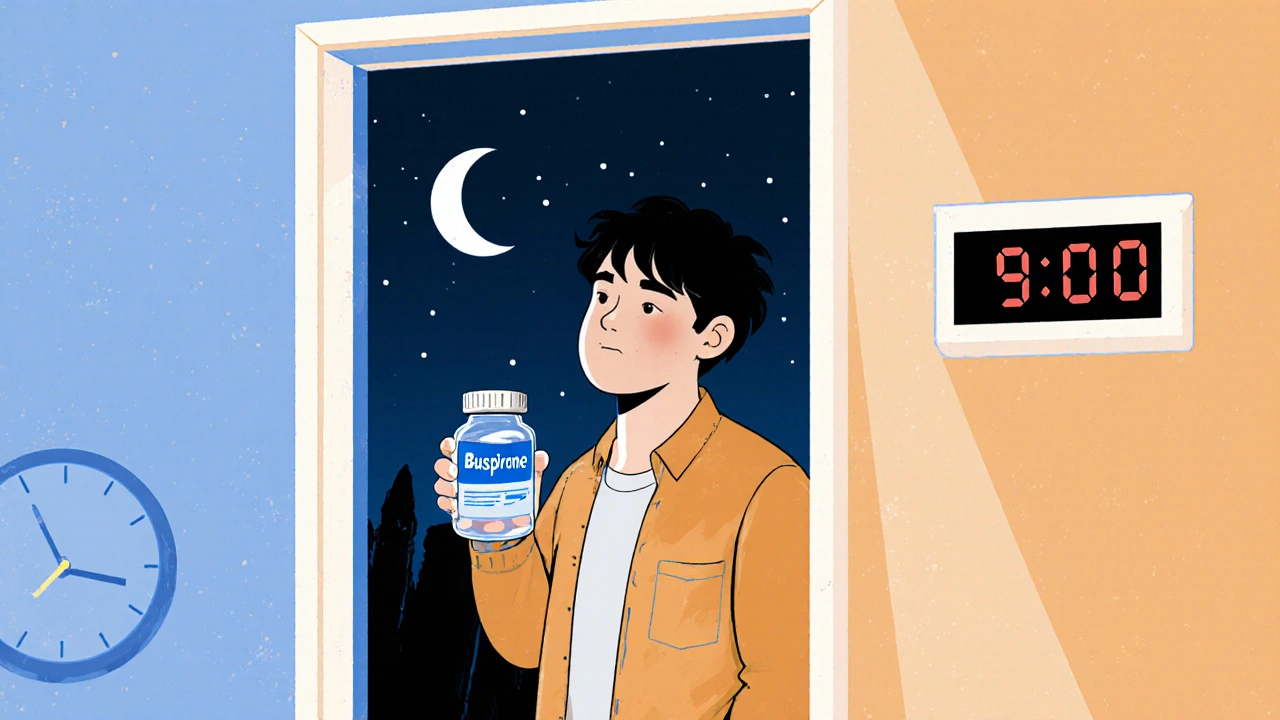Buspirone and Sleep: Effects, Tips & Managing Insomnia
Discover how buspirone influences sleep, common side effects, and practical tips to manage insomnia while staying on the medication.
Continue ReadingWhen you’re dealing with anxiety medication, drugs prescribed to reduce excessive worry, panic, or fear. Also known as anti-anxiety drugs, these are meant to calm your nervous system—but not all of them help you sleep. In fact, some make it worse. If your anxiety keeps you tossing and turning, you might be hoping your prescription will also fix your sleep. But here’s the truth: what helps your mind quiet down at night doesn’t always help your body relax into rest.
Benzodiazepines, a class of sedative drugs often used for short-term anxiety relief. Also known as benzos, they can make you drowsy, which is why some people use them as sleep aids. But they’re not meant for long nights. Over time, your body gets used to them, and you need more to get the same effect. Worse, stopping suddenly can make anxiety and insomnia worse than before. Then there are SSRIs, antidepressants like sertraline and escitalopram, commonly prescribed for anxiety. Also known as selective serotonin reuptake inhibitors, they help many people feel calmer—but they often cause insomnia, especially in the first few weeks. If you’re on an SSRI and can’t sleep, it’s not just in your head. It’s a known side effect.
Some people turn to over-the-counter sleep aids, thinking they’re safer. But mixing those with anxiety meds can be risky. Melatonin, for example, might help reset your sleep cycle without interfering—but it won’t touch the root of your anxiety. And if you’re taking something like amitriptyline for anxiety, which also causes drowsiness, adding another sedative could leave you groggy, confused, or even unsteady. The goal isn’t just to fall asleep—it’s to sleep well without creating new problems.
You don’t have to choose between anxiety relief and good sleep. There are smarter ways to manage both. Some medications, like certain SNRIs or low-dose trazodone, are actually used off-label to help with both anxiety and sleep. Others, like cognitive behavioral therapy for insomnia (CBT-I), don’t use pills at all but have proven results. The key is matching the right tool to your body’s needs—not guessing, not copying what worked for someone else, and not ignoring how your meds are affecting your nights.
Below, you’ll find real-world breakdowns of how specific anxiety drugs impact sleep, what alternatives exist, and how to talk to your doctor about adjusting your plan without risking your health. No theory. No fluff. Just what you need to know to get better rest while staying in control of your anxiety.

Discover how buspirone influences sleep, common side effects, and practical tips to manage insomnia while staying on the medication.
Continue Reading